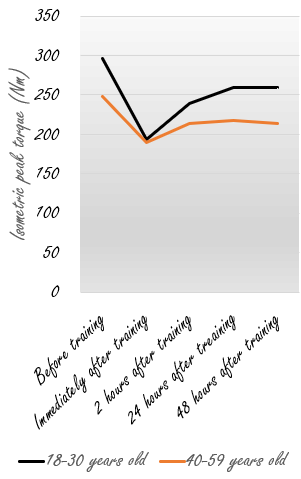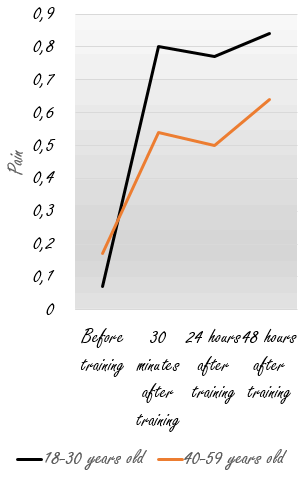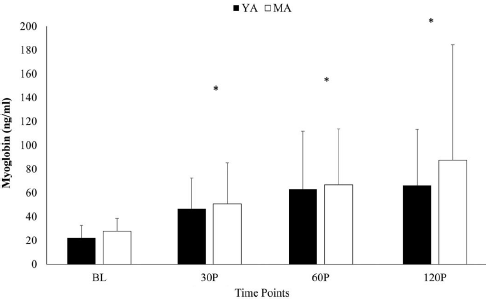If you are older than forty and train with weights, you will probably have noticed that your body is aging. Your making less progress than when you were younger, and your workouts have a more profound impact on your energy levels, your joints and muscles. Does this mean that your body recovers less quickly, and that you therefore have to train more infrequently than when you were 20 or 30 years old?
No, a small yet solid American study suggests. According to that study, people in their 40s and 50s recover from strength training just as quickly as in their twenties.
Study
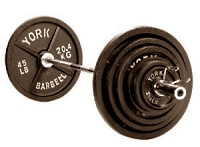 |
The researchers experimented with 19 men who had been doing strength training for at least six months. Nine men were 18-30 years old [YA], 10 men were 40-59 years [MA].
The men had to train one leg intensively with 8 sets of 10 reps on a kind of leg-extension machine. Right before that session and up to 48 hours after, the researchers studied the subjects.
Results
The days after the session both younger and older subjects developed less strength in their trained leg than before their workout. The figure below shows that the peak torque in both groups recovered in a similar way.
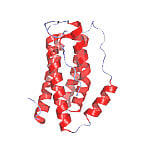 |
After the session, the two groups of subject younger reported about the same amount of muscle pain.
After the single leg workout in the subjects’ blood the concentration of substances such as creatine kinase, myoglobin [in the figure below], interleukin-6 and CRP increased. These are markers for muscle damage. Again, the researchers found no significant differences between the younger and older subjects.
Conclusion
“Results of this study indicated no differences in the recovery response between young adults and middle-aged adults for any of the performance measures, nor in subjective levels of muscle pain or soreness”, the researchers write. “Furthermore, no between-group differences were observed in the inflammatory or muscle damage response to the exercise protocol.”
“To the best of our knowledge, this is the first study to examine differences in the recovery response from high-volume resistance exercise between recreationally trained young and middle-aged adults.”
“These results should be examined in the context that recovery was investigated after a unilateral, single-joint isokinetic exercise protocol. Although this method has been previously used as an effective mode of exercise to elicit muscle damage, it is not specific to the type of exercises typically used by recreational lifters.”
“Future studies may wish to compare these population groups using multi-joint, dynamic constant resistance exercises common to the training programs of most recreational lifters, regardless of age.”


